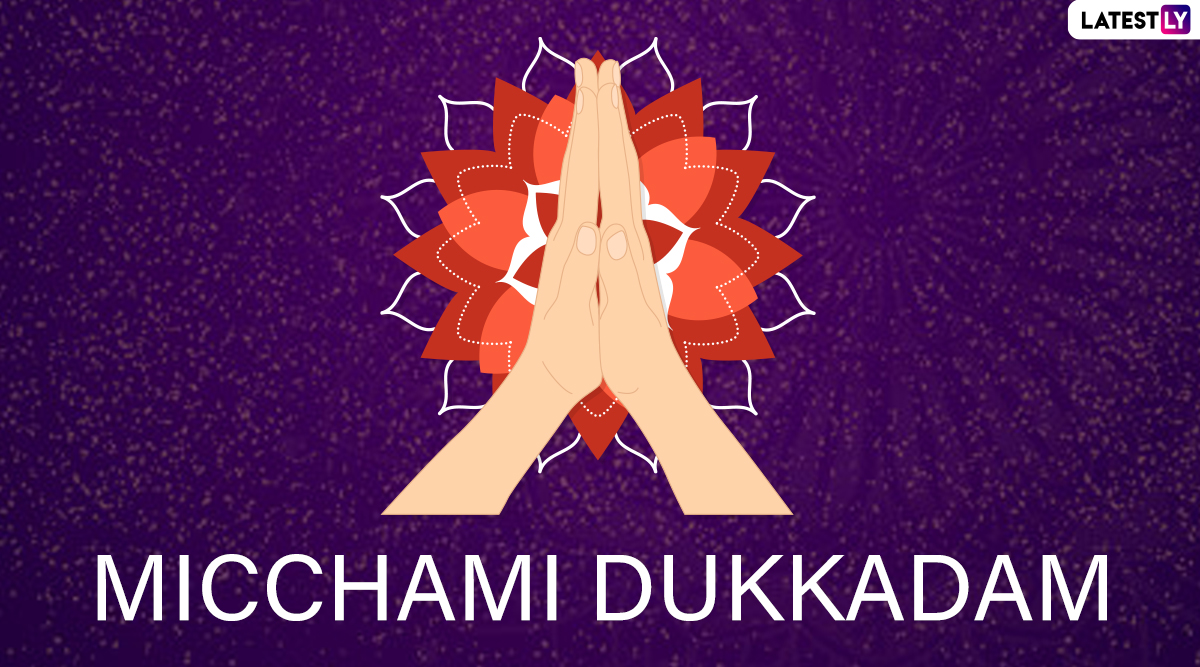By Bakul Matalia
Famous Jain monk Shri Namra Muni said “Paryushan is time to open a lock of heart and clean off dirt (karma) accumulated on soul.”
Jains all over the world observe eight days of the holiest Paryushan Parva in multifaced ways. Importantly, they introspect and reflect upon activities and actions taken place during the past year. It is an observance of spiritual awareness by controlling our inner passions (anger, deceit, ego, and greed). Jains observe five basic vows of truth, nonviolence, non-stealing, non-possessiveness, and celibacy. Most Jains also perform some form of fasting and most importantly they do soul searching and ask for forgiveness (Michhami Dukkadam) from everyone for any and all wrongs inflicted to them and to commit not to repeat such wrong actions in the future. At the same time, Jains also absolve others of their wrong doings towards them.
My intention of writing this article during Jain Paryushan Parva is to seek forgiveness for abuse I committed on Mother Earth, and to take some vows to correct wrong actions and eschew actions for protracted benefits to climate. I was confounded to realized that my actions were replete with reckless behavior towards the environment. About 2600 years ago, Lord Mahavir decried dangers of climate abuse and had prescribed rules which rings true even today.
In today’s environment everyone can partake this movement to abate climate deterioration. Lord Mahavir conveyed message where it is axiomatic that violence and abuse towards environment can only yield detrimental effects which will cause profound consequences for humans, animals, and nature. Jain aphorism “Parasparograho Jivan
-
Conserve water – Take short shower at a lower temp, minimum use of water, wise use of household water to avoid excessive water waste especially in kitchen
-
Conserve electricity – Turn off not in use ACs, TVs, fans, lights etc. Use energy efficient bulbs and appliances
-
Conserve resources – To avoid use of throwaway products like plastic bags, straw, plates, spoon, forks etc. Instead use metal straw, cloth bags, napkins, and reusable products
-
Conserve Fossil resources – Use electric car, limit use of gasoline/diesel vehicles, carpool
-
Conserve papers – Use internet, eBooks, & emails, avoid printing papers
-
Conservation – Plant trees, install solar panels on home &/or business buildings
It is immutable fact that unless we collectively curb greenhouse gases, humans, animals, and nature will face irreversible plight and resultant prophecy will not be ephemeral.
During this holy week of Paryushan, everyone should take meaningful vows to heal Mother Earth, which will be real Michhami Dukkadam (I beg your forgiveness) to Mother Earth.
—————————–
Bakul N. Matalia is a practicing Jain, a volunteer of Shanti Fund and a representative of the Anuvibha at the United Nations Department of Global Communications (UNDGC, previously UNDPI). He can be reached at [email protected]
Is Jainism the most peaceful religion?
Jainism, one of the three major religions of early India, has been continuously practiced since around the middle of the first millennium BC. Jainism has long been respected as the world’s most peace-loving religion because of its strict doctrine of non-violence (ahimsa).













